Andrew Triggs Hodge using his Olympic titles to widen appeal of rowing
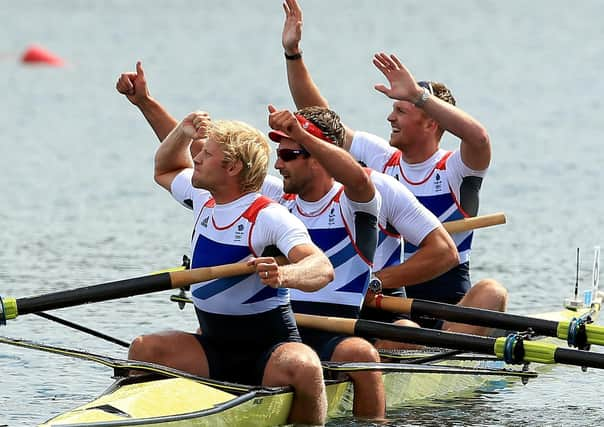

Hodge was a second-row forward on the rugby union fields of North Yorkshire during a youth spent growing up in Hebden, Wharfedale.
It was only when he ventured south to university as an 18-year-old that he took up rowing.
Advertisement
Hide AdAdvertisement
Hide AdTwenty-four years, three Olympic gold medals, four world titles and a couple of post-retirement jobs later, he is coming back to Yorkshire this autumn to try and give as many teenagers the opportunity to engage in the sport that he was never given.
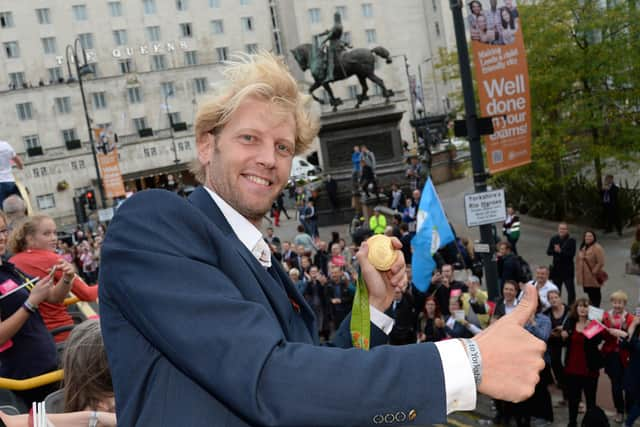

“The perception is rowing doesn’t appeal to the masses, but once you break down the barriers to access you take rowing to the people,” says Hodge.
To break down those barriers, Hodge has taken a role as director of corporate engagement with London Youth Rowing, a charity based in the capital tasked with getting children from disadvantaged backgrounds into a rowing boat.
Last week, LYR announced the launch of an initiative called Active Row Leeds aimed at 11- to 18-year-olds who might otherwise have little or no access to the sport of rowing.
Advertisement
Hide AdAdvertisement
Hide AdStarting by introducing rowing machines into schools, the programme will then present children who show an interest with the chance to take to the water at Roundhay Lake.
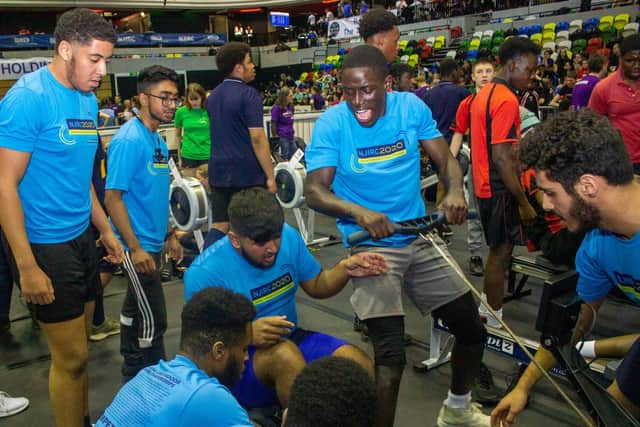

If that interest is still there, Leeds Rowing Club on the Aire-Calder Navigation Canal is the next part of the pathway.
The programme might even unearth the next Hodge, not that such a notion is the goal of the charity – or the man himself.
“There’s a lot of people who don’t even know they’re looking for a sport and that’s where rowing fits in very, very nicely, it’s just no-one knows about it, and no-one thinks it’s an option,” says Hodge. “They might see a rowing machine in the gym and they just know it as an exercise tool. But the great thing about what rowing does is it builds the community around the machine first, it gets kids together.
Advertisement
Hide AdAdvertisement
Hide Ad“It can transform the whole perception when you see groups of these kids taking the sport for themselves. They rebuild it for how they want to use it and that is exactly the transition the sport needs to go through.
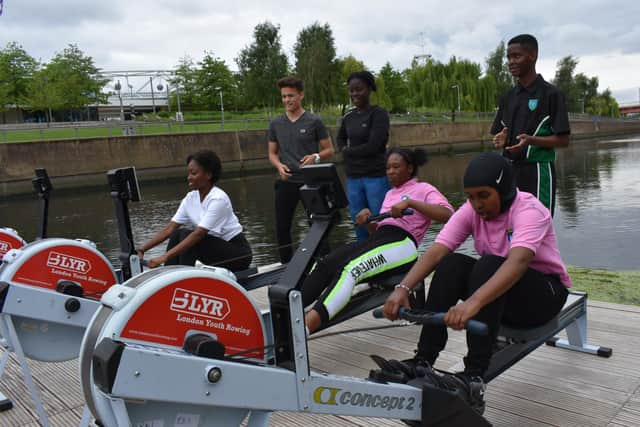

“When I was a kid growing up in Wharfedale there was no rowing. I saw the occasional canoeist on the river but it wasn’t until university that I got the first chance to have a try.
“I played rugby in school. I was a second-row forward just hitting bodies. I was looking for a sport.
“There could be thousands and thousands of kids in exactly the same position. Rowing deserves to be part of the offering to young people, and that’s why London Youth Rowing and Active Row Leeds getting kids involved and giving them the opportunity is so important.”
Advertisement
Hide AdAdvertisement
Hide AdMatt Rostron is the chief executive of London Youth Rowing. When they launched in 2005 he admits they naively thought success would be how ‘many kids came into the programme and then went to university’.
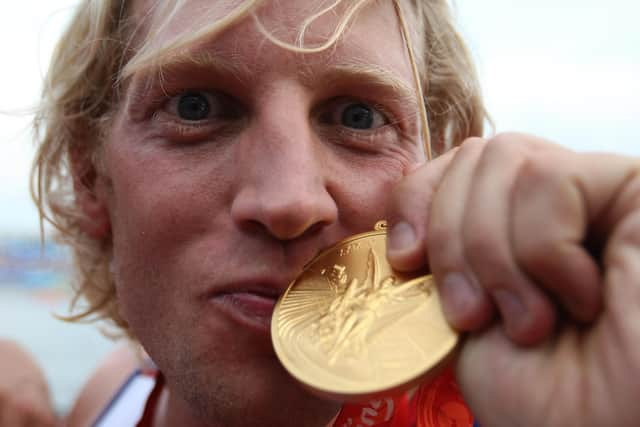

“Then we met the kids we were going to be working with, kids who were coming from second generation unemployment, they weren’t thinking about getting into university, let alone college. They were looking at a career, or an apprenticeship,” he says.
“But the skills for those career paths you can learn through rowing; time management, team building, problem solving etcetera.”
Two thousand children a year are introduced to rowing in the east end of London; 69 per cent from ethnic minority backgrounds, 49 per cent girls and eight per cent with special education needs or a disability.
Advertisement
Hide AdAdvertisement
Hide Ad“There’s an assumption that rowing is an elite sport and what we’ve been trying to do in London is break away from that to show there are opportunities outside the usual places,” explains Rostron.
“We are looking at those kids in the areas that are hardest to reach. Those kids that don’t necessarily get those opportunities to give this a go.
“It’s going to be low-income, high-unemployment areas, but this is a sport that could provide opportunities.
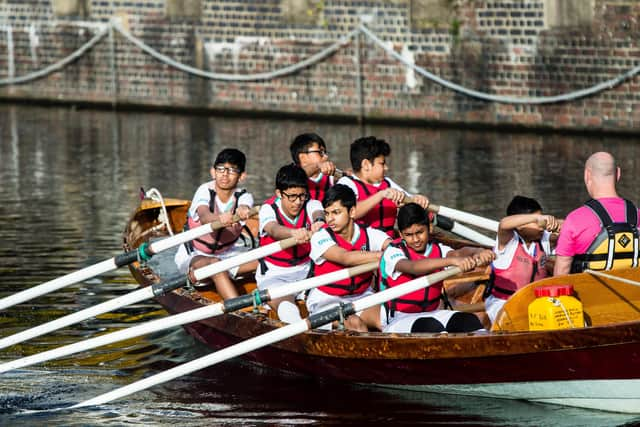

“We’re not trying to find the next Andrew Triggs Hodge, what we’re trying to do is get people active. What we want to do is give them the opportunity in schools and then give them that chance to get out on water.”
Advertisement
Hide AdAdvertisement
Hide AdActive Row Leeds will launch in September in 17 secondary schools across the city. Leeds has been chosen because of the infrastructure already in place with Roundhay Park and Leeds Rowing Club, and because of the groundwork already laid by Ben Cox, who set up Row UK in the city.
It could be a smart time to launch. Society is re-emerging from the third and potentially final Covid-enforced lockdown. Children are re-engaging with sport again, going back into old routines or trying something new.
Interest from rowing’s greatest shop window, an Olympic Games, could still be high in the late summer. Indeed, one of the great human interest stories of those Games from a British perspective could be Helen Glover, the former champion who retired to start a family, back in the boat ready to launch one last bid for gold.
“Covid has caused havoc for everyone,” admits Rostron, “but it could be perfect timing for us. Between now and the end of September we’ll contact the schools we’ll be working with, roll the programme out in September and these kids who are looking for a winter training tool could be hitting the water in the new year.”
And there will be Hodge; coaching, advising, encouraging.
Advertisement
Hide AdAdvertisement
Hide AdHe is conscious of the challenge rowing has in attracting new members and new sponsors, and determined to give something back to the sport that gave him so much.
Indeed, five years after he stepped out of a competitive boat for the last time, this second stage of his rowing career might just be his most important.
“If I wanted to sell rowing to an 11-year-old I’d say look, come and have some fun,” says Hodge, enthusiastically.
“This isn’t about performance, no-one is going to take you to exhaustion, just come down, bring some mates and see where you end up. There’ll be coaches there to support you, you’ll get technically better, fitter, and challenge yourself in a new way.
Advertisement
Hide AdAdvertisement
Hide Ad“The most important part of the sport is the community element, you’re doing it with your mates. Every person is integral to that team. Rowing is not reliant on a striker, this is about doing something together where you’re all equals. That is true from the start to however far you want to take the sport.
“Hopefully, when they get into a boat they’ll understand that aspect, that all for one, one for all, mentality.
“If we’re having fun then you can bet your bottom dollar that the people we engage with will be having fun, and that’s what drives engagement.”
Support The Yorkshire Post and become a subscriber today. Your subscription will help us to continue to bring quality news to the people of Yorkshire. In return, you’ll see fewer ads on site, get free access to our app and receive exclusive members-only offers. Click HERE to subscribe.
Comment Guidelines
National World encourages reader discussion on our stories. User feedback, insights and back-and-forth exchanges add a rich layer of context to reporting. Please review our Community Guidelines before commenting.